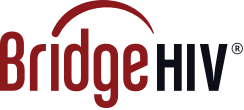
Transgender Health and HIV Prevention: An Interview with Dr. Dawn Harbatkin, Executive Director of Lyon-Martin Health Services.
Every June folks gather at Dolores Park in San Francisco to commemorate Trans March. Kicking off San Francisco Pride weekend, Trans March is a celebration and recognition of transgender and gender nonconforming people and a time to reflect on the ongoing struggle for trans people to gain visibility, representation, and voice within larger society.
Trans visibility and voice is especially necessary in terms of achieving standards of health and wellness; particularly among trans women who represent a population disproportionately affected by HIV due to social marginalization. Trans women have a right to adequate and expert healthcare; therefore, it is necessary for public health officials and advocates to continue working towards the inclusion of trans people in HIV prevention research that advances lifesaving interventions. At Bridge HIV, we believe it is important to include trans people in HIV research, for prevention cannot be advanced without trans community support and representation.
We interviewed Dr. Dawn Harbatkin, Executive Director at Lyon-Martin Health Services (a local community leader in transgender care), to gain a health provider perspective on transgender healthcare and biomedical HIV prevention.
How does comprehensive healthcare for transgender individuals and HIV prevention intersect?
For a long time people thought of transgender healthcare as getting hormones and that’s it; and if you’re getting hormones you’re getting transgender care. Just because someone is trans does not mean they shouldn’t get full comprehensive healthcare that addresses all of their biological and pyscho-social needs. HIV risk also has to be an important part of the care we are providing.
In general, transgender women tend to be at higher risk for contracting HIV. Therefore, incorporating HIV risk counseling, HIV testing, and discussions on HIV prevention techniques all from a harm reduction place really has to be part of the whole package. If a trans person comes to me with high blood pressure I would not ignore their high blood pressure. If someone comes in who is at risk for HIV, we are not going to ignore their HIV risk. We have to incorporate everything into their care and do a true primary care intervention. As a community health center we are part of that primary care. How people are having sex with each other is primary care, and I know we, as a community health center, value that type of care.
Organizations and individuals involved in HIV prevention research (both behavioral and biomedical) have been increasing their efforts to engage trans people. Do you consider it important for trans people to be represented in HIV biomedical prevention clinical studies? What do you think are the barriers and facilitators?
So, I have mixed feelings about biomedical research. I believe it brings us great advances, but often does not succeed in the ways that we hope it will. However, it is the only way we know how to do research right now and it’s incredibly important that everyone is represented, including trans people.
A barrier is that trans people have traditionally been underrepresented in biomedical research because they are more marginalized and separated out from healthcare in general. We still don’t have very much research on trans bodies and trans people. Unless we are incorporating trans folks into biomedical research we are not going to get a full picture of how whatever we are testing is going to affect them – especially around HIV where we know that certain trans women communities are at higher risk for HIV in general.
I think it would be interesting if biomedical research looked specifically at trans women. That would be really important because trans bodies can be physiologically different – not because they were born that way, but because of the interventions people do to actualize themselves and become their full authentic self.
In thinking about what would facilitate trans women’s participation in biomedical research, it is all about word of mouth. A couple go and they have a good experience, and then they tell two friends who also have a good experience, and, in turn, they tell two friends and so forth. Word of mouth is incredibly important for this community.
How do you envision biomedical HIV prevention medications like PrEP, either in the form a pill taken orally or a gel that is used vaginally or rectally, affecting trans communities? Are trans people in the community aware of PrEP?
In my experience, I don’t see the trans women that Lyon-Martin sees asking for, or being aware of, PrEP. I think our trans women at highest risk for HIV, who are having unprotected sex, are already HIV positive, so PrEP is not relevant for them. Among our other folks, they are not aware of, or not asking for, PrEP.
From what I know of the culture in and among trans women, I don’t see a rectal microbicide being acceptable unless public health departments were incredibly effective and we did long standing educational campaigns around awareness and making that common knowledge. I imagine them to be sticky, messy and irritating as most microbicides are and I don’t see that being acceptable in the community. When I treat cisgender women for vaginitis, everybody wants the pill, not the cream.
I do think, for young trans women who are first coming into the community and having unprotected sex to affirm their gender identity, having an effective and affordable PrEP medication could protect and save their life.
Thanks to Dr. Harbatkin for her time and to Lyon-Martin Health Services for their commitment to trans health in the San Francisco Bay Area.
By Jenese Jackson
To learn more about PrEP, as HIV prevention, visit PrEPFacts.org.
June 2013



